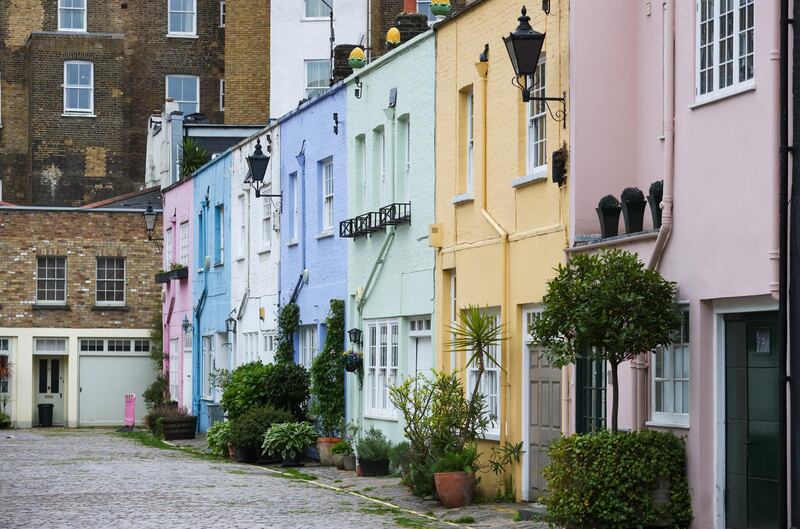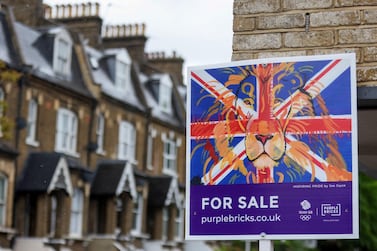British house prices soared to an average record high of £261,743 ($369,895) in May, up 9.5 per cent from the same month a year earlier – equivalent to £22,000 over 12 months.
Annual house price inflation - now at its strongest level in seven years - saw prices rise 1.3 per cent on the month, adding more than £3,000 to the value of an average home, according to the Halifax House Price Index, as Britons continued to cash in on Chancellor of the Exchequer Rishi Sunak's stamp duty holiday.
“Heading into the traditionally busy summer period, market activity continues to be boosted by the government’s stamp duty holiday, with prospective buyers racing to complete purchases in time to benefit from the maximum tax break before June’s deadline, after which there will be a phased return to full rates,” said Russell Galley, managing director of Halifax.
“For some homebuyers, lockdown restrictions have also resulted in an unexpected build-up of savings, which can now be deployed to fund bigger deposits for bigger properties, potentially pushing property prices even higher.”
Britain's housing market surged last year after the first coronavirus lockdown created pent-up demand and Mr Sunak's stamp duty break, unveiled last July, boosted activity in the sector even more.
The tax break, initially due to expire in March, has been extended until June 30, with the first £500,000 of any property purchase in England or Northern Ireland remaining exempt from the levy. After June, a £250,000 tax-free allowance will run until the end of September.
The current Stamp Duty reduction is due to change on June 30th. If your purchase isn’t complete by this date, the amount of Stamp Duty you pay may differ. For more info: https://t.co/LMWxDLwQOE pic.twitter.com/OhYAAS3awF
— Halifax (@HalifaxBank) June 4, 2021
While Wales recorded the strongest price growth across the country, with average prices up 11.9 per cent over the past 12 months, the south of England – traditionally the driving force of the market – was lagging behind.
Prices in Greater London were up 3.1 per cent on the year, still significantly behind the rest of the country, something Mr Galley said reflects the weakness in the capital, which is suffering as buyers hunt out homes with more space following the pandemic lockdowns.
“Recent surcharges on stamp duty for non-UK residents and Brexit concerns will also have weighed on the capital’s market,” said Mr Galley.
“However it should not be forgotten that London property prices were already extremely expensive, having experienced a boom following the global financial crisis, a phenomenon not felt by many other UK regions and nations to anywhere near the same extent.”
Looking ahead, Mr Galley said while the current surge is temporary, as it is linked to the tax break, the strength in house prices also points to a deeper and long-lasting change as buyer preferences shift in anticipation of new, post-pandemic lifestyles.
“Greater demand for larger properties with more space might warrant an increased willingness to spend a higher proportion of income on housing,” he said.
“These trends, coupled with growing confidence in a more rapid recovery in economic activity if restrictions continue to be eased, are likely to support house prices for some time to come, particularly given the continued shortage of properties for sale.”
The report confirmed the findings of Nationwide Building Society, which also said prices were growing at the fastest rate since 2014.
British mortgage lending slumped in April, falling £8.2 billion from a record high a month earlier, reflecting uncertainty in the market at the time over the stamp duty holiday that was due to expire on March 30.
Despite the drop in mortgage borrowing, British lenders approved 86,900 home loans in April, up from 83,400 in March, with the figure expected to escalate in May after buyers flooded the market to cash in on the stamp duty extension and unleash savings built up during lockdowns.








